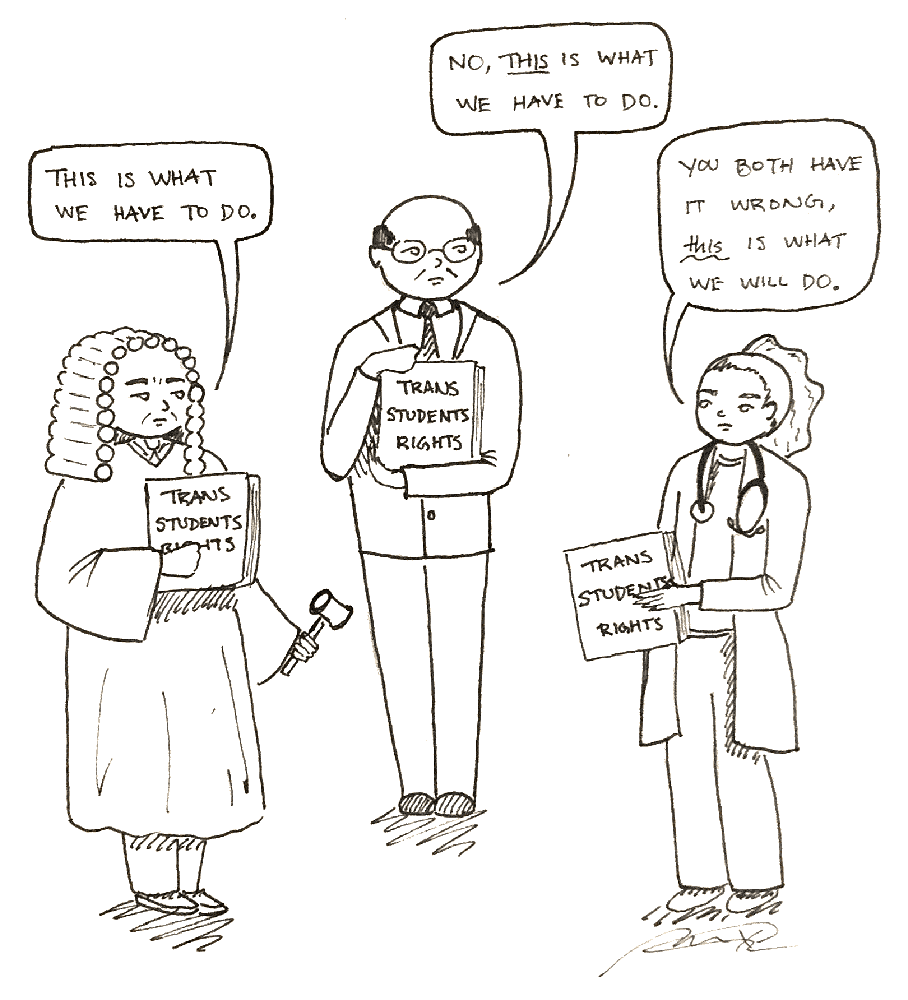 This fall, the O’Neil Institute for National and Global Health Law at the Georgetown University Law Center will host a colloquium on the role of law and policy in affirming the rights of transgender individuals, marking a great step forward in the university’s effort to promote diversity and inclusivity. However, the lofty conceit of the O’Neil colloquium means nothing without practical, university-wide implementation.
This fall, the O’Neil Institute for National and Global Health Law at the Georgetown University Law Center will host a colloquium on the role of law and policy in affirming the rights of transgender individuals, marking a great step forward in the university’s effort to promote diversity and inclusivity. However, the lofty conceit of the O’Neil colloquium means nothing without practical, university-wide implementation.
The spirit of this colloquium stands in sharp contrast to recent actions taken by the MedStar Georgetown University Hospital, which denied treatment to multiple transgender patients on account of their gender identities this summer. In need of immediate treatment due to life-threatening infection and fever, Catherine Campo was referred to the hospital’s Breast Health Center, where she was denied reconstructive surgery on account of her transgender identity.
According to Ruby Jade Corado, the founder of Casa Ruby, a Northwest D.C. community-services center for LGBTQ individuals, Campo is not alone. More than 20 transgender patients have been denied transition-related and life-saving procedures at MedStar Georgetown.
This blatant display of discrimination encourages transgender individuals to seek out unregistered doctors for their treatment, violates the hospital’s promise of “compassionate care” and underscores the O’Neil colloquium with a sad irony.
While distinguished speakers and professors preach equality at Georgetown Law, transgender patients are turned away at MedStar Georgetown.
Former D.C. Mayor Vincent Gray made it illegal for insurance companies to deny costs related to gender-identity procedures, and the Affordable Care Act states that hospitals that receive federal funding cannot discriminate on the basis of sexuality or gender identity. The District of Columbia also has laws that prohibit discrimination based on sexual orientation and gender identity. MedStar administrators’ actions, therefore, have clear legal and moral implications.
In light of this divide, the MedStar Georgetown administrators must take concrete steps toward an approach to transgender rights that is in line with that of Georgetown Law and Georgetown University, in order to ensure that transgender individuals are respected and integrated members of the Georgetown community. “Compassionate Patient Care” is an empty promise when some patients are mistreated and made to feel like outsiders.
While Georgetown’s policies still need much work — university’s administration must still take more concrete steps to protect the right of transgender students to access locker rooms and restrooms according to their gender identities, without fear of punishment or reproach, for instance — their policy is a better launching board for progress than what is currently being used as MedStar Georgetown.
The hospital cannot continue to deny health services to transgender patients. A better approach is needed. For the well-being of transgender students and patients, this must come sooner rather than later.



















